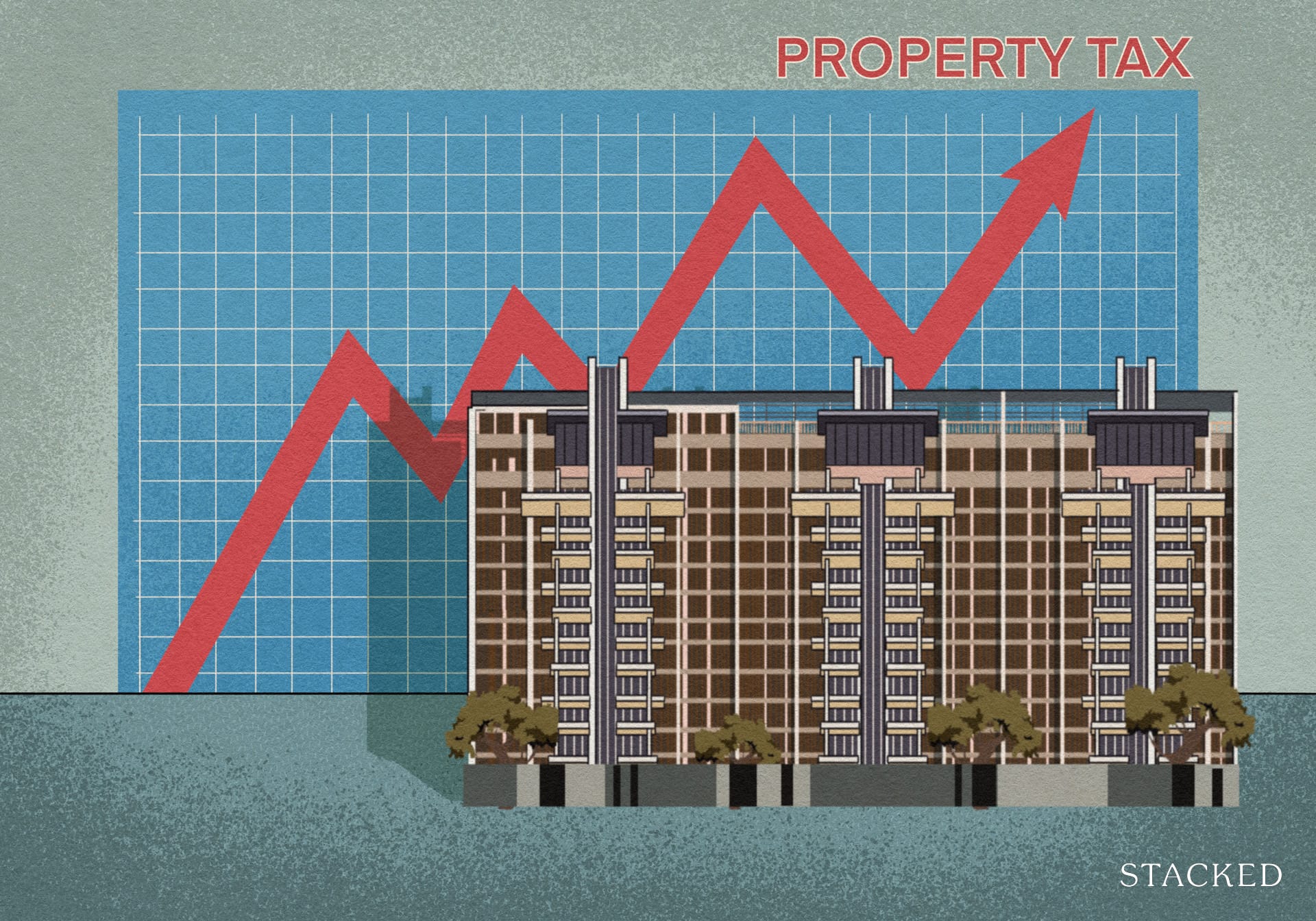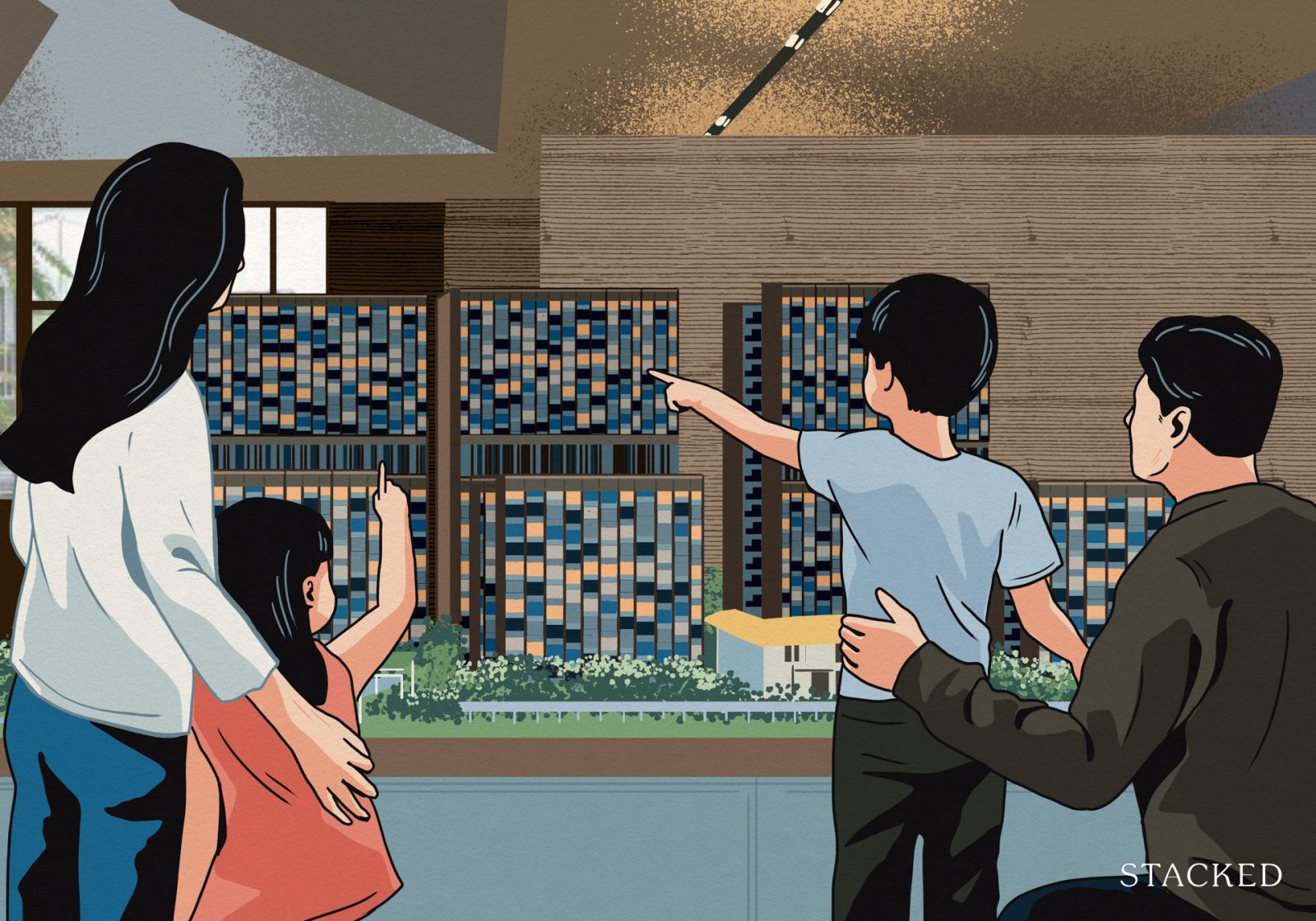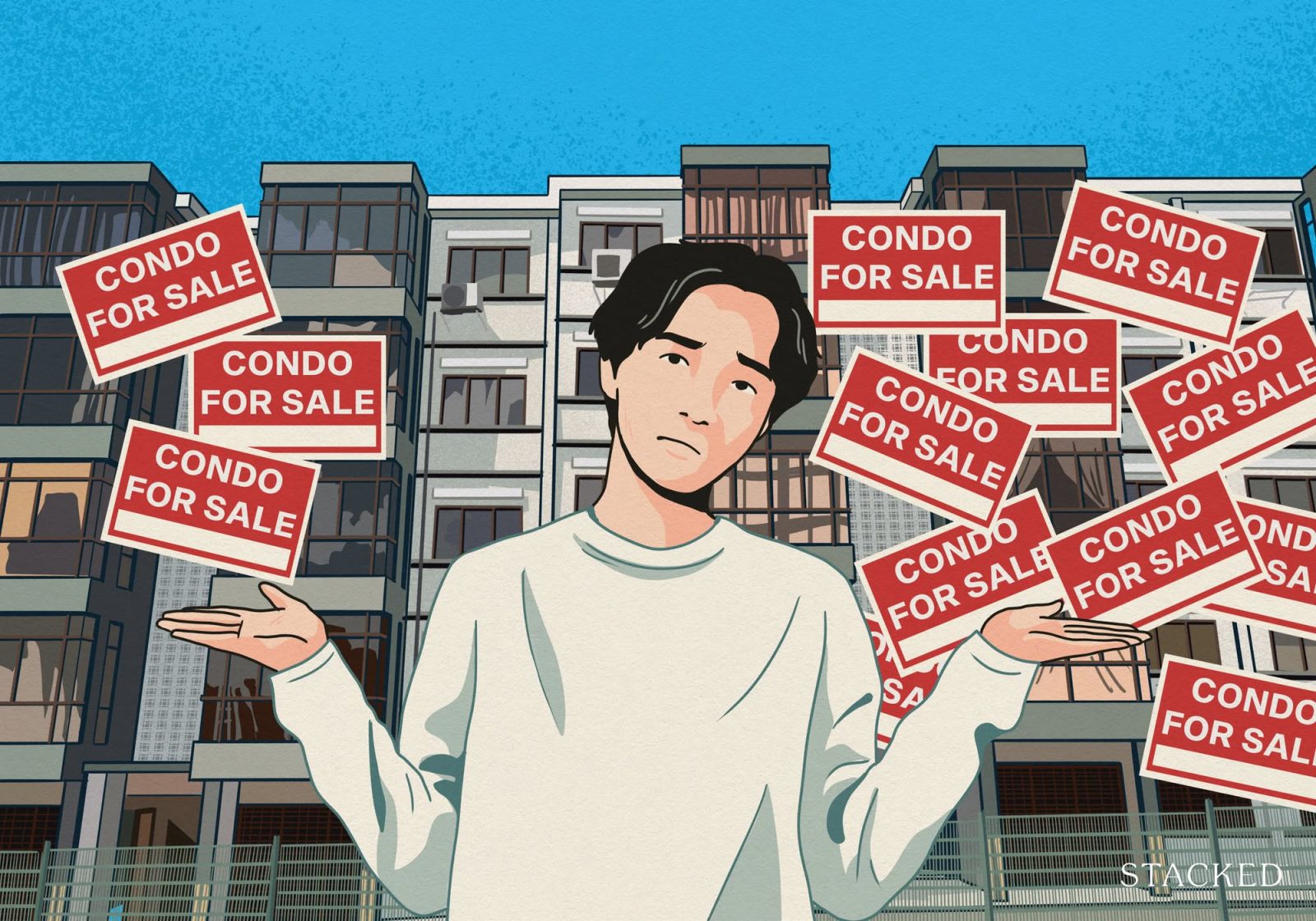Higher 2025 Seller’s Stamp Duty Rates Just Dropped: Should Buyers And Sellers Be Worried?
July 4, 2025

Seller Stamp Duty is back to the way it was. Again. Because, of course, it is.
To prevent the market from reacting on time and deprive me of sleep, the government has just announced, at close to midnight on 03 July 2025, that Sellers Stamp Duty (SSD) rates are back to how they were in 2017. This is to cool the property market, because nothing helps to lower prices like further restricting the resale supply, at a time when many of the new launches are in the Core Central Region (CCR). Here’s more on this stroke of genius.
(Update: As of 4/7/25, IRAS has clarified that SSD is based on exercise date to exercise date; more on this below)
Table of Contents
- What is SSD, and what is happening?
- What does this mean for you?
- First, we could see less speculative buying, and fewer sub sale transactions
- Second, it could slow the supply of resale units entering the market.
- Why buying in 2025 might mean less competition later on
- The bargaining power could shift
- This is also a valuable lesson about the dangers of over-leveraging, or being overly optimistic about flipping
What is SSD, and what is happening?
Starting 4 July 2025 at 12:00 am, SSD rates go up, and the holding period gets longer. If you sell a property within:
- One year of buying it, you pay 16 per cent of the sale price as SSD
- Two years of buying it, you pay 12 per cent
- Three years of buying it, you pay eight per cent
- Four years of buying it, you pay four per cent
The SSD doesn’t apply if you sell from the fifth year onward. None of this is relevant to HDB properties by the way, since you can’t sell within the five-year Minimum Occupancy Period (MOP), but it’s very relevant to private property sales.
The “new” SSD rates are not in fact new; this is the same SSD structure we had back in 2017. For a time, they were relaxed to three years and four per cent less across each tier; but to discourage flipping and rising property prices, the government is going back to the old system.
What does this mean for you?
If you’re planningto buy with a short olding period, expect your property agent to give you a much more cautious briefing than before. The new SSD regime means that if you sell within four years, you’ll face a tax of 4 to 16 per cent. This is enough to derail plans for a quick exit, or prompt a panicked rethink down the road.If you’re not selling within this time period, then this isn’t of any immediate urgency to you.
Also, as a matter of clarification from IRAS, SSD will be calculated from exercise date to exercise date. For example: it you exercised the Option To Purchase (OTP) BEFORE 4th July 2025, but it’s sold on or aftrt 4th July 2025, then the relevant SSD rate will apply.
In the bigger picture though, a longer SSD period has two main implications (and a smaller one, but still worth noting):
First, we could see less speculative buying, and fewer sub sale transactions

That’s the theory, at least. With longer periods before you can flip a property for profit, more buyers will be in the owner-occupier category. Speculative buyers (e.g., those trying to buy at steep discounts at launch, and then sell before the Temporary Occupancy Permit) might drop out of the picture if they have to hold for longer.
This probably won’t result in lower prices, as it’s a preventative action. The intention is to stop any bubbles or speculative surges forming; perhaps because the government worries about a flight to safe capital in an uncertain economy, or feels the current high prices are due to people flipping properties.
Which could have fooled me, because here I was thinking it was post-COVID inflation; but it’s reassuring to imagine some high-level policy maker is calling the shots. So let’s all do that.
More from Stacked
How Much You Need to Earn to Afford a One or Two-Bedder Condo In 2026 (As a Single)
The start of the house-hunting season looms on the horizon and we’re already seeing activity in the new launch market.…
Second, it could slow the supply of resale units entering the market.

This is exactly what we need when faced with a slew of new launches in Singapore’s most expensive region: a move that will thin the number of resale/sub sale options. Resale is already difficult to find now, but perhaps the new challenges will be character-building.
In all fairness, a major contributing factor to the lack of resale units is also the high cost of replacement properties; and that’s still likely to have a much greater impact than the reversion to the older SSD structure. But it’s hard to see how extending the SSD period and raising the tax, is going to help incentivise more people to sell.
But in the bigger picture, this could also quietly shift market dynamics, and not in the way most people are thinking.
Why buying in 2025 might mean less competition later on
If you’ve purchased a new launch unit this year, you’re in a unique position because come 2028, most others won’t be able to sell. With the new 4-year SSD in place, the usual wave of newly completed units hitting the market post-TOP may be noticeably smaller.
What does this mean? 2028 could be a dry year for buyers looking for newly completed, move-in-ready homes. Fewer units available, fewer choices, and possibly more urgency for those who can’t wait or don’t want to go into the resale market.
The bargaining power could shift

While a slower market is never ideal, scarcity changes dynamics. If you’re one of the few who can sell in 2028, perhaps because you bought before the rule change, you might find yourself holding the upper hand.
Buyers scrambling for new, just-TOP units will have fewer options. And if resale prices continue their steady climb, sellers with move-in-ready homes could command more attention, and more favourable offers.
It’s a rare case where a restriction on selling could create an opportunity for those who don’t need to sell fast.
This is also a valuable lesson about the dangers of over-leveraging, or being overly optimistic about flipping
I have come across buyers who hold the theory that “it doesn’t matter what the price is, I’m going to sell it for more anyway.” These are the ones who are overconfident in their early developer sale discounts.
While they might still pull it off, the changes to the SSD may now leave them holding on longer than they expect. This is a reminder that policy decisions – sometimes decreed just before midnight – can seriously penalise you for your assumptions.
The ones who will suffer the most are buyers who have seen drastic changes in income, and thus urgently need to right-size. If they’re caught within the new SSD period, losses from urgent sales can be compounded by the new stamp duty.
I hope no one reading this is too adversely affected, and that overzealous buyers remember to curb their enthusiasm. Maybe if all of us in the market play dead for a while, the roving menace of policy will get bored and wander off again.
For more on the situation as it unfolds, follow us on Stacked. Unsure about your next move and how this regulation would affect you? Get in touch for a more in-depth consultation here.
At Stacked, we like to look beyond the headlines and surface-level numbers, and focus on how things play out in the real world.
If you’d like to discuss how this applies to your own circumstances, you can reach out for a one-to-one consultation here.
And if you simply have a question or want to share a thought, feel free to write to us at stories@stackedhomes.com — we read every message.
Frequently asked questions
What are the new seller stamp duty rates in 2025 and how long do they apply?
How does the change in SSD rates affect property sellers and buyers in Singapore?
Does the new SSD rate apply to all property sales in 2025?
What impact might the longer SSD holding period have on the property market in the coming years?
Should buyers and sellers be worried about the recent SSD rate changes?
Ryan J. Ong
A seasoned content strategist with over 17 years in the real estate and financial journalism sectors, Ryan has built a reputation for transforming complex industry jargon into accessible knowledge. With a track record of writing and editing for leading financial platforms and publications, Ryan's expertise has been recognised across various media outlets. His role as a former content editor for 99.co and a co-host for CNA 938's Open House programme underscores his commitment to providing valuable insights into the property market.Need help with a property decision?
Speak to our team →Read next from Singapore Property News

Singapore Property News Why Some Singaporean Parents Are Considering Selling Their Flats — For Their Children’s Sake

Singapore Property News Nearly 1,000 New Homes Were Sold Last Month — What Does It Say About the 2026 New Launch Market?

Singapore Property News The Unexpected Side Effect Of Singapore’s Property Cooling Measures

Singapore Property News The Most Expensive Resale Flat Just Sold for $1.7M in Queenstown — Is There No Limit to What Buyers Will Pay?
Latest Posts

Pro This 130-Unit Condo Launched 40% Above Its District — And Prices Struggled To Grow

Property Investment Insights These Freehold Condos Barely Made Money After Nearly 10 Years — Here’s What Went Wrong

Pro River Modern Starts From $1.548M For A Two-Bedder — How Its Pricing Compares In River Valley


































0 Comments